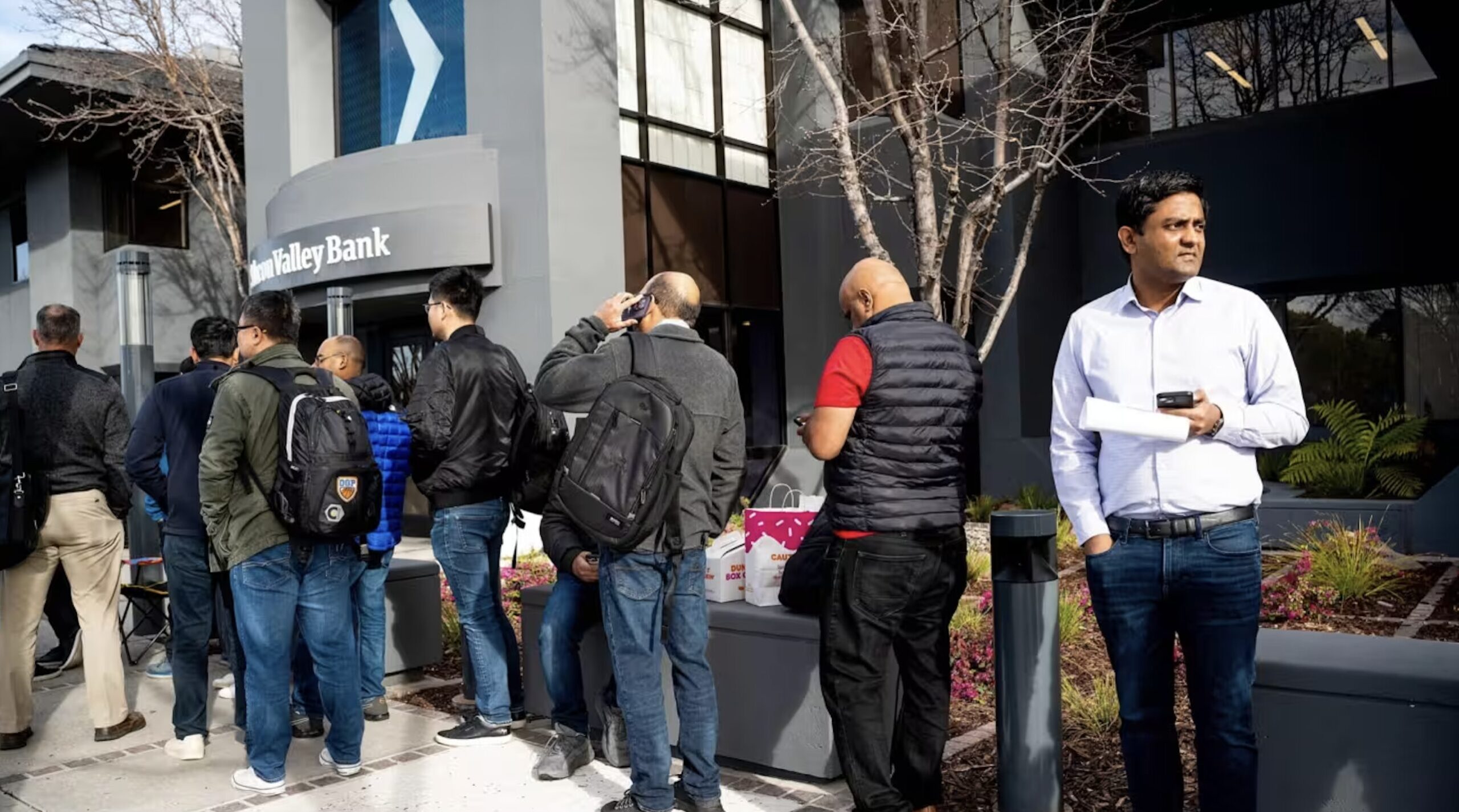
One reason so many are quitting: We want control over our lives again
The pandemic, and the challenges of balancing life and work during it, have stripped us of agency. Resigning is one way of regaining a sense…
Thought Leader: Amy Cuddy

Sheila Bair, former chair of the FDIC and author of the upcoming book How Not to Lose a Million Dollars says we need to support the thousands of community and regional banks that play a critical role in lending to growing businesses.
Government deposit insurance schemes are said to reduce market discipline. With their money guaranteed by the government, depositors have no incentive to scrutinize banks for financial soundness.
Yet, there is greater moral hazard when depositors forgo due diligence and simply put their money into mega banks deemed “too big to fail”. This makes it harder for the US’s unique system of thousands of community and regional banks to attract deposits and play a critical role in lending to new and growing businesses. The US needs to fight fire with fire through targeted increases in deposit insurance limits.
The Federal Deposit Insurance Corporation has a perfect record of protecting insured bank deposits. For this reason, insured depositors do not flee banks, even in times of stress. Deposits above the insured limits — currently $250,000 — do “run”, however, as we saw during the 2008 Great Financial Crisis, and the 2023 regional bank failures. In both instances, the deposits “ran” from smaller banks to the big institutions.
Our community and regional banks need stable deposit funding. They are responsible for a significant majority of bank loans to small and medium businesses and these SMEs, in turn, generate about two-thirds of new jobs. Typically, SMEs also maintain transaction accounts at their bank lenders. The account balances will ebb and flow above insured limits, even for the smallest businesses, as they receive income and pay bills. Full access to these accounts is vital to local and regional economies as they enable businesses to make payroll, pay vendors, and cover other operational expenses.
During the 2008 financial crisis, the FDIC used emergency authorities to successfully staunch uninsured deposit outflows by giving business transaction accounts temporary, unlimited protection. Notwithstanding the success of the programme, Congress revoked that authority in 2010.
In 2023, the FDIC resorted to one-off bailouts of all uninsured depositors at two failed regional banks, citing the need to protect transaction accounts and prevent more widespread runs. The bailouts helped slow outflows, but regional banks still lost hundreds of billions of deposits to the largest institutions. And they cost the FDIC $18.5bn.
Pending before Congress is legislation sponsored by Senators Bill Hagerty (a Republican from Tennessee) and Angela Alsobrooks (a Democrat from Maryland) to provide up to $20mn in deposit insurance protection for business transaction accounts at banks that have under $250bn in assets. This is sensible legislation that will preserve and protect valuable business accounts at smaller banks, while preventing the kind of expensive, unfair bailouts we saw in 2023. The bill wisely limits coverage to accounts paying zero interest so risky banks cannot abuse it by attracting large deposits with high rates.
One argument against the bill is that it will increase moral hazard. But, unlike investors and wealthy savers, SMEs have these accounts not for yield, but to make payments.
Incongruously, another argument is that the bill is unnecessary because “market-based” alternatives exist in the form of so-called reciprocal deposit providers. Smaller banks pay significant fees to these firms to spread their large deposits among a network of banks, ensuring that each segment remains below the limits. This, in effect, raises the deposit limits set by Congress, while the FDIC takes all of the increased risk — essentially private rent seeking.
A final argument is that the expanded coverage will increase the FDIC’s resolution costs, ultimately leading to significant premium hikes. But small banks will save money on fees they will no longer need to pay for reciprocal deposits. The bill provides for a gradual transition for any premium increase, which, in any event, will be largely covered by the too-big-to-fail banks that pay the overwhelming majority of deposit premiums. If enacted, the bill could actually decrease FDIC resolution costs by reducing unnecessary failures caused by uninsured deposit runs. Even where banks fail, it will protect their valuable business transaction accounts, preserving franchise value and enabling the FDIC to auction them at higher prices.
Congress should also restore the FDIC’s emergency authority to temporarily expand deposit insurance. Enjoying unfair competitive advantages, TBTF banks have grown in dominance, while the total number of banks has shrunk from 8,304 in 2008 to 4,421 today. Our community and regional bank sectors are burning at the edges. Expanded deposit insurance is the firewall we need.
A globally recognized authority on financial regulation and economic policy, Sheila Bair led the FDIC through the 2008 financial crisis and has since continued to shape the future of finance through leadership roles in government, academia, and the private sector. Named to Time’s “Top 100” and Forbes’ “Most Powerful Women” lists, she is a trusted voice on stability, reform, and consumer protection in the global economy. To bring Sheila Bair’s insight and leadership to your next event, contact WWSG.
One reason so many are quitting: We want control over our lives again
The pandemic, and the challenges of balancing life and work during it, have stripped us of agency. Resigning is one way of regaining a sense…
Thought Leader: Amy Cuddy
Molly Fletcher: Can drive offset your burnout at work?
This piece is by Molly Fletcher. People assume that drive depletes energy. They believe that level of intensity, focus and daily effort leads to burnout.…
Thought Leader: Molly Fletcher
Paul Nicklen: A Reverence for Nature
Standing in front of any of Canadian photographer Paul Nicklen’s large-scale images in the current exhibition at Hilton Contemporary, one cannot help but be totally…
Thought Leader: Paul Nicklen

